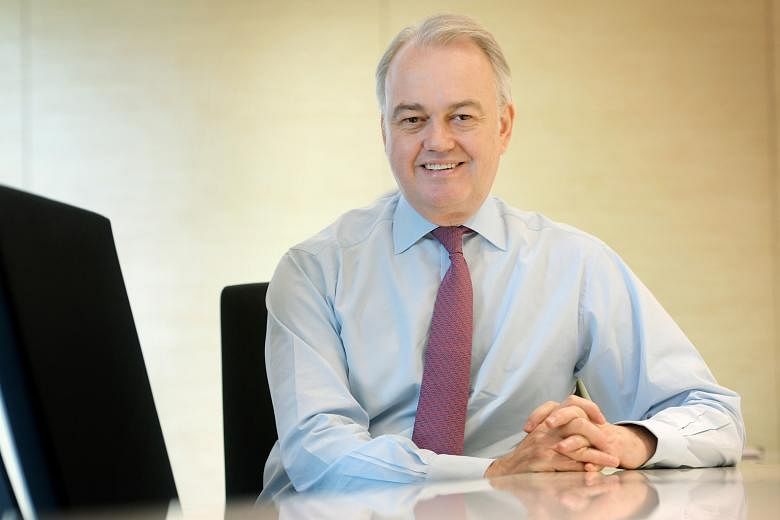Clifford Capital had a breakout year in 2016, helping Singapore firms flex their muscles on the global infrastructure scene with its project financing solutions.
Now, the Temasek-linked company is ready for its next phase of growth, eyeing more opportunities in this region.
The firm, which is 40.5 per cent owned by Temasek Holdings, was founded in 2012 with government backing, but is independently run.
It aims to help companies with a meaningful presence in Singapore pursue infrastructure, shipping and offshore marine projects across the world. "Last year was a particularly important year for us because a number of projects we'd been working on - some of them since our inception - came to fruition," the firm's chief executive Clive Kerner told The Straits Times.
One of the projects was sealed late last month - a senior secured term loan facility for Sembcorp Utilities to develop a gas-fired power plant in Sirajganj, Bangladesh. Clifford will commit US$103 million (S$146.8 million) to the deal, which also involves partners such as International Finance Corp.
"It was a landmark deal in several ways. The loan has the longest tenor achieved so far in Bangladesh, which is in great need of power infrastructure. But it's also something we'd actually worked on for the past two years, a showcase of our reach and long-term commitment."
Another deal with Sembcorp to finance a power plant project in Myanmar may be signed within months, Mr Kerner added.
In all, Clifford has committed some US$1.5 billion as at the end of 2016, well on its way to hit its five-year target of hitting US$2 billion worth of assets.
Funded by debt issuances with Singapore Government guarantees, Clifford provides financing solutions ranging from senior secured term loans to senior bonds. This means the company has the uncontested right to collateralised assets should a financed project fail.
That has yet to happen. Instead, Clifford has helped finance over 20 projects. Its major deals last year included Hyflux's desalination project in Oman and PSA Panama's Rodman port expansion.
"Our key performance indicator is more than just profitability and return to shareholders, which has been on target every single year.
"We also need to demonstrate that we can indeed help Singapore companies go the distance and explore global opportunities, including distant markets where perhaps their relationship banks are not ready to go."
While projects in Latin America have been a major source of business, demand in Asia is also on the rise and Clifford is ready to leverage on the regional opportunities for the next phase of growth.
This is reflected by the fact that "a handful" of local companies are in the process of bidding for power- generation projects in Indonesia, said Mr Kerner. "We have the capacity for up to US$500 million of commitments annually, and that's the target we continue to aim for."
But Mr Kerner is aware that the infrastructure pipeline growth for private sector investors will take time.
"Needless to say there is a huge demand for new infrastructures in Asia that needs a more active involvement by the private sector. But for a long while there hasn't been enough bankable projects coming to the market," he said.
He added: "Many of these projects carry a level of risk - such as regulatory risks and sovereign non-honouring risks - that may be hard to absorb for the private sector.
"I believe that is slowly changing, that the risk allocation between the government and private investors is becoming more even. Hopefully the upcoming Indonesian projects will bring more to the pipeline."
Meanwhile, Clifford is working with the Government to consolidate Singapore as the regional infrastructure financing hub.
"One interesting idea is how we can create infrastructure debt as an asset class. In Asia, project financing has long been dominated by commercial banks. But with tighter regulations it's harder for them to provide the long tenors that make these projects viable," said Mr Kerner.
"We see banks wanting to offload these loans from their balance sheets once a project reaches operational stage. At that point, because their default rate is historically very low, these long-term loans are very attractive to institutional investors such as pension funds and insurance companies.
"We are in close conversation with the Government to explore how that transformation of debt to institutional investors can be executed, and I believe Clifford Capital can have a very central role in this development."


